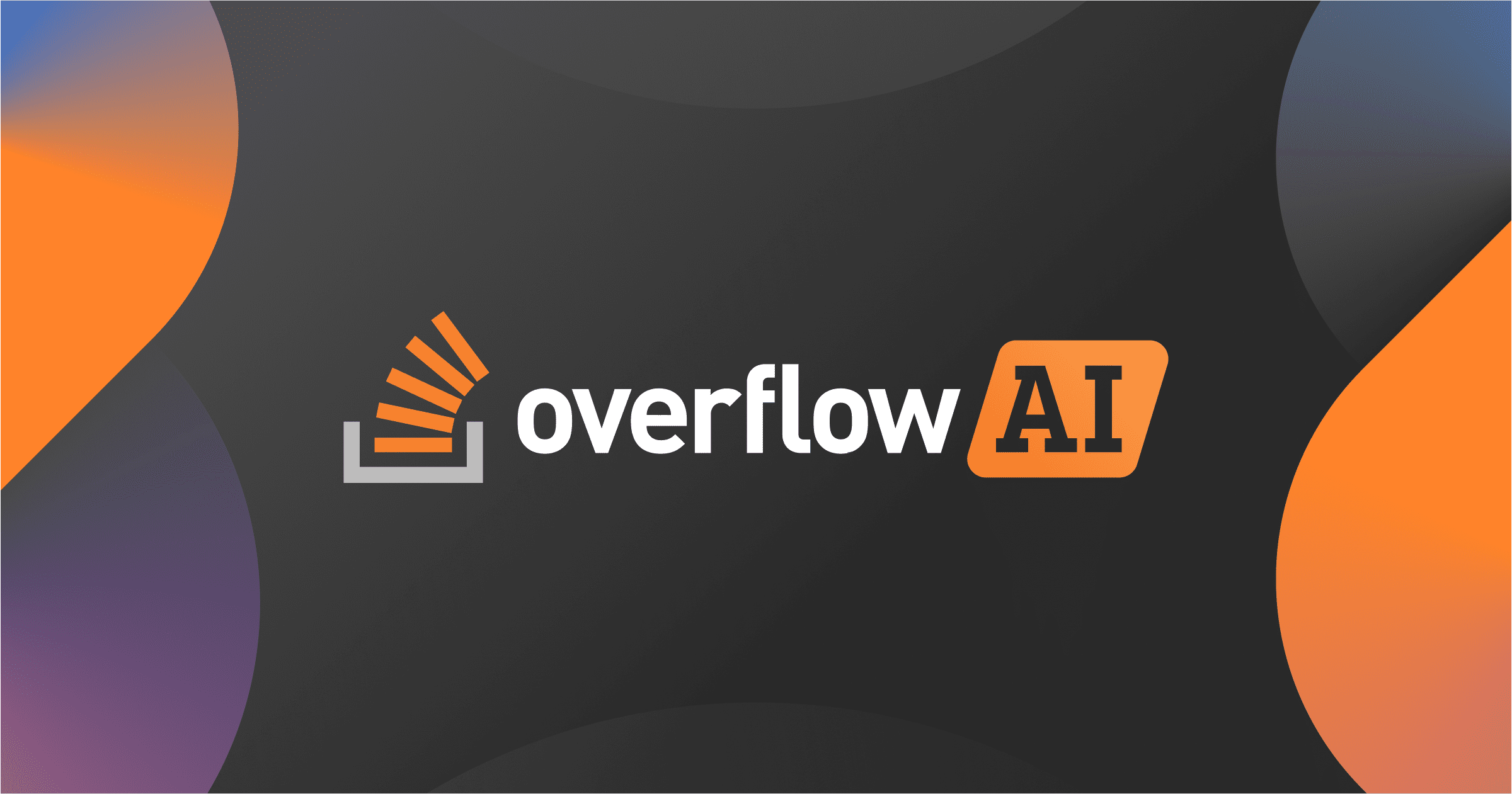- cross-posted to:
- auai@programming.dev
- technology@lemmy.ml

That would be pretty easy.
return "Why are you even trying to do it this way?\n$link_to_language_spec\nThis should be closed.;
Meanwhile language spec:
-
Extremely high level description along with some implementation details you don’t care about
-
function signature

- extends Object

I love how it was obvious what language I’m talking about without saying anything specific
-

It really puts their stance on “no AI generated answers” in a different light.
Basically, “no AI generated answers unless we do it”.

Well, using ai-generated answers to train their own ai would bring down the quality of answers and worse quality means lesser money. Don’t you want them to make any money??!!

Stack Overflow is unique as a page, in the sense that its contributions are under a license that allows for reuse (Creative Commons Share-Alike) as long as the individual users are properly credited. Does this mean that OverflowAI keeps the credit metadata and knows who wrote each individual part of an answer?

AI doesn’t work that way. No one wrote “part of the answer.” It’s more like each contributor casted a vote on what the next token should be and it randomly picks one of the top ten voted tokens. (Very very roughly.)

Fair enough, but at least there should be a way for OverflowAI to list which contributors had the strongest link to the given answer, right?

Edit: definitely read the other responses because apparently there are some techniques I wasn’t aware of and don’t understand nearly as well as I understand the underlying AI technology - and I’m only an enthusiast layman.
I don’t think there is any way of doing that. AI is like a huge matrix that says ‘if (’ is followed by
’ x’: 60%
’ foo’: 19%
’ person’: 9%
Etc.
And then it does it all over again for the next token based on randomly selecting one of the tokens and then saying ‘if ( person’ is followed by
‘.id’: 30%
‘.name’: 27%
Etc.
So just to write a simple ‘if person.name.startsWith(“foo”) {’ is the aggregate result of thousands of contributors - really pretty much every author of every code snippet ingested from the training material.
There is no single author even if the code matches existing code token for token. The only exception would be code that is so esoteric that there is only a single author writing code that does a particular thing. But even in that case, there is nothing in the probability matrix to indicate that a particular sequence of tokens is unique to a certain author. Best you could do is full text search a line of code to see if it matches anything in the training data and if there is a very small set of authors to whom credit might be assigned. That might be possible, but it would be an add-on (and significant performance hit) to the actual AI itself. Sort of like how browser integrated AI just runs a search and feeds the result into the context to make the output more likely to contain information in the top results.

It depends. The base model, sure you can’t really figure out what percentage of it came from which data source since there’s just too many data sources and that information is lost along the way. They’re likely not using the entirety of SO to generate answers though. Retraining LLMs is ungodly expensive, so they can’t retrain it every time a new Q or A is created, and even retraining on a regular basis would be impractical.
Instead, without knowing exactly how they’re doing it of course, my guess is they’re pulling relevant Q&As from their database, then using those results to improve the response (for example by providing them as context). If you’re interested, look into retrieval-augmented generation.

I am interested, thank you!

Check out the article and feature video. It does appear to link to answers it pulled from. Bing and Bard do the same. Posters saying it’s impossible are mistaken.

Thanks for the TLDW - I could ogle a bit of the article but since I was at work, I couldn’t just play the video out loud.

Posters aren’t saying that its impossible to put search results through an LLM and ask it to cite the source it reads. They’re saying that the neural networks, as used today in LLMs, do not store token attribution in the vocabulary or per node. You can implement a system for the neural network to work in that provides it the proper input (search results) and prodding (a prompt that encourages the network to biasing toward citation), not that the single LLM can conceptualize of that on its own.

If it’s doing a search for the code, pulling it in to the context, and then spitting it back out in slightly modified form, then it can attribute the source it pulled in. That’s a very different thing from the AI because code that is pulled into context by a search had a strong influence on the output. The output is still generated the same way but it would be reasonable to credit the author of the code that is pulled in. However, the code in the training data cannot be credited. How you would pull in just the right piece of code in the first place though is a bit of a mystery to me.

There are a few ways of finding which code is relevant, but one way is to use some sort of vector database to perform the search using embeddings generated from the Qs, As, and query.
Embeddings are essentially semantic representations of the text which can be compared to each other for similarity.

Then I’m guilty of breaking the license. I have always been stealing code from Stack Overflow. Well, since I’m a senior dev right now I steal only from answers.

It does seem to do that in the feature video. It appears to link to all the answers it pulled from.

Nice choice of logo colors, btw.

I just noticed…
- argv_minus_one ( @argv_minus_one@beehaw.org ) English16•11 months ago
I look forward to the AI trend fizzling out. It’s only slightly less silly than the cryptocurrency trend was.

It reminds me of 3D

AI exists because not everyone frequents a low toxicity forum like Lemmy.
- argv_minus_one ( @argv_minus_one@beehaw.org ) 2•11 months ago
This artificial pseudointelligence exists because there’s the “gee whiz, that’s cool” of a computer talking like a person, and a bunch of hype chasers looking to cash in. Much like cryptocurrency before it, and the dot-com boom before that, there is little substance to it, and most of it will be commercially irrelevant a decade from now.

Do we have a term for combination of enshittyfication and LLM?

Maybe add NFTs into the mix too. But don’t tell wsb and the GME gang.

I feel like a better solution is to have a community answer as generative AI to every new question and have folks upvote or downvote it like normal.

I understand Google and Microsoft getting into it as it makes sense as a “better” Google search but for StackOverflow that sounds like they have just given up on their current platform.

I get the whole community resource and all that hoorah, but what bothers me the most is that C*O somewhere that’s padding his bonus and CV, waiting for the ship to sink so he can move on to the next thing where he can sing praises to the AI revolution.

Many coding languages, mixed text and code, just plain wrong answers (commented as such). What can go wrong?
They can DDOS themselves to show raise in visits but it won’t help long-term.

Can someone tell me what their angle is? Are user’s supposed to curate and help train the model for free? Is it just a model trained on stackoverflow data?
All their data is open so what edge do they over the already established competition.

This type of Q&A interface is very popular and stealing traffic away from sites like Google and Stack Overflow. Stack Overflow can train it on their data and has a feature where it links to every answer it pulled from. I think that’s a nice feature and like that I can troubleshoot further on my own, as AI can often hallucinate an answer or lose a piece of context I need.

I think SO has had people hallucinating for some time but it wasn’t AI driven
Hah, good to know that even on programming@programming.dev there are people who agree that stack overflow moderation is too draconian to ask questions in anymore. It’s a good resource, though, so an LLM will probably be the answer to make the knowledge base more usable without angering its elder gods.

Probably the same data that ChatGPT or Google Bard has been trained on which to me makes the distinction moot

Well that explains why they did a 180 on their “no AI” rule, which has the mods in a tizzy.
Who knows, maybe it’ll cut back on the toxicity in the sense that you don’t have to interact with toxic people ¯\_(ツ)_/¯

Like toxic mods

They only had to improve the search and kept it a human platform!

Clearly read the title as Stack Overthrow AI


